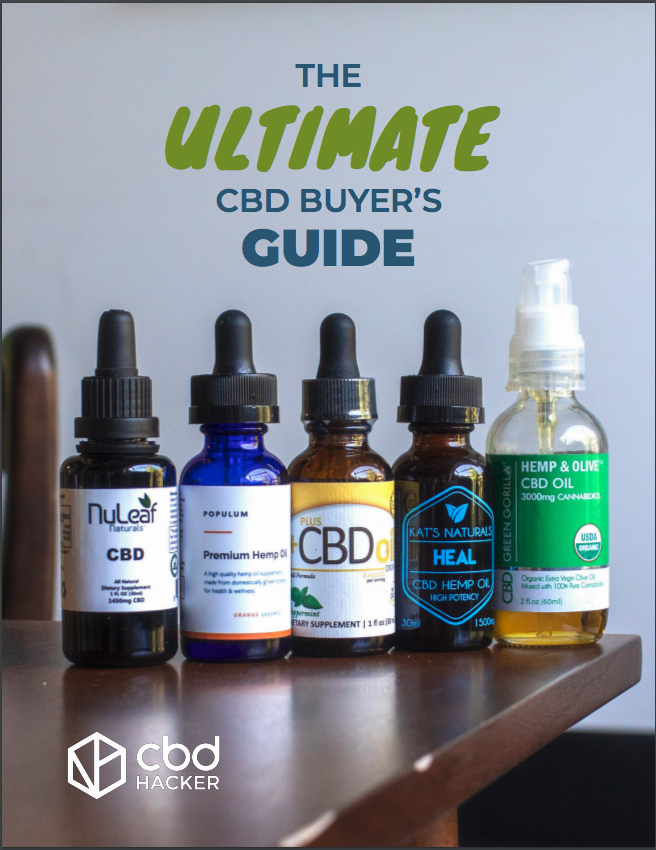The versatile hemp plant has been globally cultivated for thousands of years. But today, there is widespread confusion about its uses and how it relates to—and differs from—marijuana.
In large part, the confusion is due to the fact that both hemp and marijuana are species of the genus Cannabis, a word that comes with a long-standing stigma associated with “weed” and getting high.
Since approximately 8,000 BC, people have grown cannabis in all its forms for a spectrum of uses. These include nutrition, paper, textiles, biofuel, medicine, building materials, and more.
It wasn’t until the 1930s that political agendas and anti-marijuana propaganda changed the conversation about hemp to promote fear of marijuana (see also: Reefer Madness).
Fast forward to 2018: Legalized cannabis is on the rise, but with so much time lost, we have a lot of catching up to do in regard to education.
Today we are tackling the similarities and differences between hemp oil and CBD oil. Is hemp oil the same as CBD oil? Read on to find out.
What is Hemp Seed Oil?
Hemp oil, or hemp seed oil, is cold-pressed and extracted from industrial hemp seeds.
Hemp seeds do not produce either CBD or THC, but small amounts of cannabinoid-rich resin may come into contact with the seeds during harvesting and processing. This means that very sensitive tests might detect trace amounts of cannabinoids in some hemp seed oils.
Because those quantities are so small, hemp seed oil will not get you high. But it also lacks the medicinal values associated with medical marijuana.
However, hemp seed oil is full of nutrients such as healthy fats and essential fatty acids, protein, vitamin E, phosphorus, potassium, sodium, magnesium, sulfur, calcium, iron, and zinc.
Hemp seeds and hemp seed oil are typically available at health food stores and are most commonly used for cooking (pro-tip: add shelled hemp seeds to salads and smoothies for a nutrient boost).
What is CBD Oil?
On the other hand, CBD oil is made from the flowers, leaves, and stalks of Cannabis plants, rather than from its seeds.
Of course, CBD oil contains high levels of cannabidiol (CBD), but only trace amounts of THC—from a legal standpoint, CBD oil cannot contain more than 0.3 percent THC, so it will not get you high, even if consumed in large doses.
Recap: Is Hemp Oil the Same as CBD Oil?
Hemp seed oil does not contain CBD or THC, while CBD oil has high levels of CBD and no more than 0.3 percent THC.
Both CBD oil and hemp oil are derived from the Cannabis family; however, CBD oil comes from the flowers, leaves, and stalks. Hemp seed oil comes from the seeds.
CBD oil is mostly used for medicinal purposes. Hemp oil is used in more industrial ways, as well as a natural health supplement.
Why Some CBD Products are Marketed as Hemp Oil
Really, the answer to this question comes down to working around the grey areas of legislation.
On the federal level, the DEA has ruled that cannabis in all forms is still categorized as a Schedule I drug. Substances in this category are illegal in the United States.
This contradicts the hemp provisions in the 2014 Farm Bill, though. According to this law, cannabis plants are legal to grow and use in individual states. The catch? It can only be grown through pilot programs exploring the viability of hemp as an agricultural product.
To avoid run-ins with the FDA for making health claims, many companies have started branding their hemp-derived CBD oil as “hemp oil,” since hemp oil doesn’t pose itself as a medicine.
Whew! Are you still with us? We know this is a confusing topic, so thanks for sticking around.
Long story short: CBD oil and hemp seed oil are not the same.
Hopefully in the coming months and years, the red tape surrounding hemp and CBD will loosen up. Then, Americans will have the opportunity to use these natural resources to their full potential.






